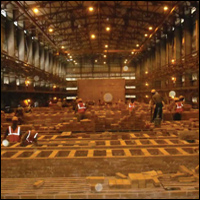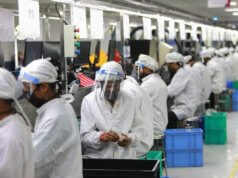Between 2003 and 2006 Odisha government (then known as Orissa) signed 45 MoUs with investors to set up steel plants in the state. Names included, POSCO, Arcelor Mittal, Tata Steel, Sterlite and Welspun. Had all these projects materialized, state would have got an investment of Rs. 1,95,462 crore (at the then prevailing price). Come 2013, most of these projects are still at the same stage where they were ten years ago – just on paper with many of the MoUs getting lapsed.
Considering the snail’s pace at which steel projects are moving in the state, Odisha Government’s State Level Task Force (STF) for Steel recently recommended a two-year extension of Memorandum of Understanding (MoU) for as many as 11 steel projects in the State. These included MoU signed with Tata Steel for its Kalinga Nagar project, Shyam Metalics & Energy Ltd, Rungta Mines Ltd and MSP Metalics Pvt Ltd.
What went wrong for the state holding a third of the country’s iron ore reserves which once dreamt of becoming India’s steel hub? When we tried to find out the reasons, many were not willing to come on record for obvious reasons. “It is foolhardy to assume that all the MoUs signed will materialize”, said a state official on the condition of anonymity. It is also equally true that many MoUs were signed without going into the background of the investors.
Investors have a list of grievances to mention – pending statutory approvals, non-availability of raw material linkages, issues related to land acquisition and law and order problems. In fact, Union Steel Ministry recently identified eight steel projects in Odisha suffering from delay- Posco India, Tata Steel, Essar Steel, Visa Steel, Jindal Steel & Power Ltd (JSPL), Uttam Galva Steel Ltd, Monnet Ispat & Energy Ltd and Amtek Metal & Mining Ltd. However, the state government presents Posco project as a case in point to show its determination to ensure the project sails through. Posco India which wanted to set up 12 MTPA steel plant near Paradip port wanted 4004 acres of land. However, the company faced stiff resistance from the locals and as result the company was forced to scale down its land requirement to 2700 acres of land. Required land was acquired only recently, after 8 years of signing MoU.
|
Status of proposed steel projects in Odisha
|
||||
|
Company
|
Location
|
Planned investment (Cr `)
|
Capacity (MTPA)
|
Present status
|
| Mittal Steel |
Keonjhar
|
40,000
|
12
|
Abandoned
|
| Tata Steel |
Kalinganagar
|
34,500
|
6
|
First phase is likely to be completed by August 2014
|
| Sterlite |
Keonjhar
|
20,000
|
5
|
Stalled
|
| Posco |
Paradip
|
12,000
|
4
|
Land acquisition for the first phase just completed
|
| Uttam Galva |
Keonjhar
|
12,000
|
3
|
Land is yet to be acquired
|
| Welspun |
Barbil
|
6,103
|
3
|
Land is yet to be acquired
|
| Tube Investments |
Kalinganagar
|
3,480
|
1.3
|
Abandoned
|
| Tata Sponge |
Joda
|
3,100
|
1.5
|
Project kept on hold
|
| Crackers India |
Gobardhanpur
|
3,050
|
0.2
|
Delayed due to issues relating to funding and mining
|
| Rungta Mines |
Dhenkanal
|
2,275
|
2
|
Land acquisition yet to be completed
|
| Sunflag Iron |
Angul
|
940
|
1
|
Deferred
|
Tata Steel’s 6 MTPA steel project is held up at Kalinganagar, due to non-renewal of existing mining leases and grant of fresh leases is pending at the state government level. Jindal Steel and Power could not make much headway in implementing its 6 MTPA steel project at Angul due to non allocation of captive iron ore mine. Uttam Galva, on the other hand, is awaiting allotment of land for its three MTPA steel project at Keonjhar.
Even the economic cycle is not favouring the state either. Situation prevailing in the aftermath of economic meltdown of 2008, is not at all conducive for any massive investment. There is uncertainty in western world, especially in Euro Zone and demand for commodities including steel is on the downswing thereby deterring the fresh investment in new steel projects. In India though domestic steel production is growing, liquidity crunch and policy paralysis being experienced in last few years has shaken the confidence of investors.
At the same time, part of the blame has to be shared by some of the investors. For example, Arcelor Mittal never made any serious attempt to break the ground to set up the plant after signing the MoU. In fact, world’s largest steel maker was rapped by the state government for slow progress of its project in 2009. With its MoU getting lapsed and demand for steel stagnating in Europe, there is no burning need for Mittal to rush for the project. After all, Arcelor Mittal is known more for inorganic growth than organic route. Similarly, Sterlite too is not so keen on pursuing its adventure in steel sector for the time being due to uncertainty surrounding iron ore mining.
But it is not just the steel projects which are getting inordinately delayed in Odisha, India’s one of the poorest states. Projects in other sectors like power too face delay. For example, NTPC’s Rs. 11,400 crore Darlipali power project has been hanging fire for want of requisite clearances and the physical possession of land. State too has identified delays in land acquisition and procedural delays as the obvious bottlenecks in the implementation of projects. Still the state government is not ready to bite the bullet due to obvious reasons. One would only hope that after next year’s elections situation might change for better.
| Steel projects ‘land’ in trouble |
|
Significant delay in project implementation and inability to acquire land easily and without opposition from the locals has prompted two of India’s largest investors to scale down their planned investments in the country. The developments are seen as a major blow to FDI in India. Citing these and other reasons, global steel giants POSCO and ArcelorMittal have decided to pull out of their proposed projects in Karnataka and Odisha, respectively. On July 16, POSCO of South Korea said it was dropping plans to establish a 6-million tpa steel plant in Gadag district of Karnataka. “Considering the significant delay in the project and inability to get land in Gadag, POSCO finally decided to close the project in Karnataka. Consequently, in June 2013, both Karnataka Industrial Areas Development Board and POSCO cordially agreed upon to end this project. However, both will positively consider any good future opportunity for investment,” the company said in a press statement. In June 2010, POSCO signed an MoU with the Karnataka government at the Global Investors Meet in Bengaluru for setting up a steel plant in the state. Subsequently, in January 2011, the company zeroed in on Gadag as the site of its project and notified KIADB accordingly. According to POSCO, the hearing with the land owners was held in June 2011; however, progress on land acquisition was slow due to agitation by farmers and religious leaders. Finally, the land acquisition process was halted in July that year. In addition, the mining scam in the state made progress “stagnant.” “With the given market conditions and significant delay in acquiring the required land in Gadag, we have decided to close our proposed 6-million tpa steel plant in Karnataka,” Yong Won Yoon, Chairman and Managing Director, POSCO India, said, adding, “We highly appreciate the (state) industries department and KIADB for their cooperation and cordial support in this regard. In future, if we get an attractive business proposal from the state, we may consider it and return to Karnataka.” A day later, on July 17, ArcelorMittal announced that it was scrapping its 12-million tpa integrated steel plant project in Keonjhar district of Odisha, citing inordinate delay in getting land and mines as reasons. The company was to invest Rs.40,000 crore in the entire project. “Unfortunately, the project has faced significant external delays. ArcelorMittal has not been able to acquire the requisite land for the steel plant, nor has it been able to ensure captive iron ore security, which is a necessary requirement for the project. Therefore, taking into account the current economic climate, ArcelorMittal has concluded it will no longer be pursuing its plans for a steel plant in Keonjhar at this stage,” the company said in a press statement. “Over the last seven years we have invested considerable resources into the project; however, the delays relating to land acquisition and allocation of captive iron ore blocks mean this project is no longer viable,” Vijay Bhatnagar, Executive Vice President and Member of the Management Committee, and CEO of India and China, said. “Nevertheless, we will continue to pursue our other two projects in Jharkhand and Karnataka, both of which are making steady progress.”’ ArcelorMittal signed the MoU with the Odisha government in December 2006 for a 12-million tpa integrated steel plant in Keonjhar. |











